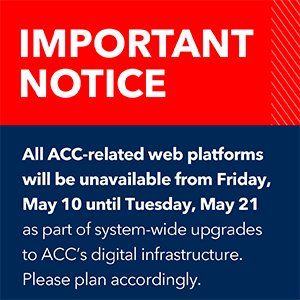Intensive Statin and Antiplatelet Therapy for Acute High-Risk Intracranial or Extracranial Atherosclerosis - INSPIRES
Contribution To Literature:
The INSPIRES trial showed that in patients with mild ischemic stroke or high-risk TIA, clopidogrel-based DAPT initiated within 72 hours of symptom onset was associated with decreased risk incidence of recurrent ischemic or hemorrhagic stroke and a small but higher risk of moderate to severe bleeding at 90 days compared with aspirin monotherapy.
Description:
The goal of the trial was to determine whether dual antiplatelet therapy (DAPT) with clopidogrel and aspirin initiated within 72 hours of mild ischemic stroke or high-risk transient ischemic attack (TIA) was associated with decreased incidence of recurrent stroke compared with aspirin monotherapy.
Study Design
- Multicenter
- Double-blind
- Placebo-controlled
- Randomized
The INSPIRES trial features a 2x2 factorial design of DAPT vs. aspirin monotherapy and immediate vs. delayed intensive statin therapy at 222 participating centers in China. Patients with mild ischemic stroke or high-risk TIA were randomized in 1:1:1:1 fashion within 72 hours of symptom onset to each combination of antiplatelet and statin strategies. The current data report only the combined antiplatelet strategy arms of DAPT with clopidogrel and aspirin (n = 3,050) and matching placebo with aspirin (n = 3,050). The DAPT group was administered clopidogrel 300 mg and aspirin 100-300 mg on day 1, aspirin 100 mg daily on days 2-21, and clopidogrel 75 mg daily on days 2-90. The placebo arm received aspirin 100-300 mg on day 1 followed by aspirin 100 mg on days 2-90.
- Total number of enrollees: 6,100
- Duration of follow-up: 12 months
- Median patient age: 65 years
- Percentage female: 36%
Inclusion criteria:
- Age 35-80 years
- Stroke with National Institutes of Health Stroke Scale (NIHSS) score ≤5 or TIA with ABCD2 score ≥4 within 24-72 hours of symptoms OR stroke with NIHSS score 4-5 within 24 hours of symptoms
- Atherosclerotic ischemic etiology due to ≥50% stenosis extracranial or intracranial artery stenosis OR multiple acute infarcts due to obstructive vessel stenosis or nonobstructive, unstable plaque
Exclusion criteria:
- Systemic thrombolytic or endovascular recanalization therapy
- Other anticoagulation or antiplatelet therapy post-stroke/TIA
- DAPT or intensive statin therapy ≤2 weeks prior
- Suspected cardioembolic or other nonatherosclerotic ischemic etiology
- Pre-stroke/TIA modified Rankin scale ≥2
- Prior intracranial hemorrhage
Other salient features/characteristics:
- Prior ischemic stroke: 30%
- Prior aspirin use: 13%
- TIA: 13%
- ≥50% symptomatic extracranial or intracranial artery stenosis: 82%
- Stroke with NIHSS score ≤3: 76%
- TIA with ABCD2 score 4-5: 80%
Principal Findings:
The primary efficacy outcome, recurrent stroke (ischemic or hemorrhagic), for DAPT vs. aspirin monotherapy at 90 days, was: 7.3% vs. 9.2%, hazard ratio (HR) 0.79 (95% confidence interval [CI] 0.66-0.94), p = 0.008.
Secondary efficacy outcomes for DAPT vs. aspirin monotherapy at 90 days:
- Composite of cardiovascular death, nonfatal myocardial infarction, or stroke: 7.5% vs. 9.3%, HR 0.80 (95% CI 0.67-0.96)
- Ischemic stroke: 6.8% vs. 9.0%, HR 0.75 (95% CI 0.63-0.90)
- Post-stroke/TIA modified Rankin scale ≥2: 9.9% vs. 11.4%, HR 0.87 (95% CI 0.76-0.99)
The primary safety outcome, GUSTO moderate or severe bleeding, for DAPT vs. aspirin monotherapy at 90 days, was: 0.9% vs. 0.4%, HR 2.08 (95% CI 1.07-4.04), p = 0.03.
Secondary safety outcomes for DAPT vs. aspirin monotherapy at 90 days:
- All-cause death: 1.2% vs. 1.0%, HR 1.24 (95% CI 0.76-2.00)
- Intracranial hemorrhage: 0.6% vs. 0.3%, HR 2.13 (95% CI 0.92-4.93)
Interpretation:
The INSPIRES trial demonstrated a reduction in 90-day recurrent stroke (ischemic or hemorrhagic) associated with clopidogrel-based DAPT vs. aspirin monotherapy instituted within 72 hours of mild ischemic stroke or high-risk TIA not treated with thrombolysis or percutaneous revascularization. Based on the previous POINT and CHANCE trials, the American Heart Association/American Stroke Association 2019 updated acute ischemic stroke guidelines provide a Class I, Level of Evidence A recommendation to clopidogrel-based DAPT within 24 hours of mild ischemic stroke or TIA. The current data provide justification to extend the window of DAPT in this population up to 72 hours after symptom onset, which may provide additional ischemic benefit to patients who present later or whose evaluation and treatment may be otherwise delayed. The reduction in stroke risk was significant despite observations that most recurrent events occur early post-index event, which was also evident on this study’s time-to-event analysis.
Like the POINT and THALES trials, which examined clopidogrel and ticagrelor-based DAPT within 24 hours of symptom onset, respectively, the risk of moderate to severe bleeding with DAPT was higher compared to the aspirin monotherapy group. The absolute risk of significant bleeding was slightly higher in INSPIRES compared to prior trials and may reflect a small increase in intracranial hemorrhage in patients with NIHSS score 4-5, who were not included in the CHANCE and POINT trials, and initiation of DAPT at ≥24 hours, potentially after further infarct evolution.
Subgroup analyses suggested greater benefit to DAPT with fewer comorbidities such as hypertension or diabetes as well as with delayed versus immediate high-intensity statin therapy, but these outcomes remain exploratory. The study population was almost entirely of Han Chinese descent, which is associated with higher frequency of intracranial artery stenosis and may limit generalizability to other populations. However, the current trial provides new evidence to potentially support an expanded therapeutic window for DAPT in mild ischemic stroke or TIA.
References:
Gao Y, Chen W, Pan Y, et al., on behalf of the INSPIRES Investigators. Dual Antiplatelet Treatment up to 72 Hours After Ischemic Stroke. N Engl J Med 2023;389:2413-24.
Kim AS. Extending Dual Antiplatelet Therapy for TIA or Stroke. N Engl J Med 2023;389:2478-9.
Clinical Topics: Vascular Medicine
Keywords: Dual Anti-Platelet Therapy, Ischemic Attack, Transient, Ischemic Stroke
< Back to Listings

